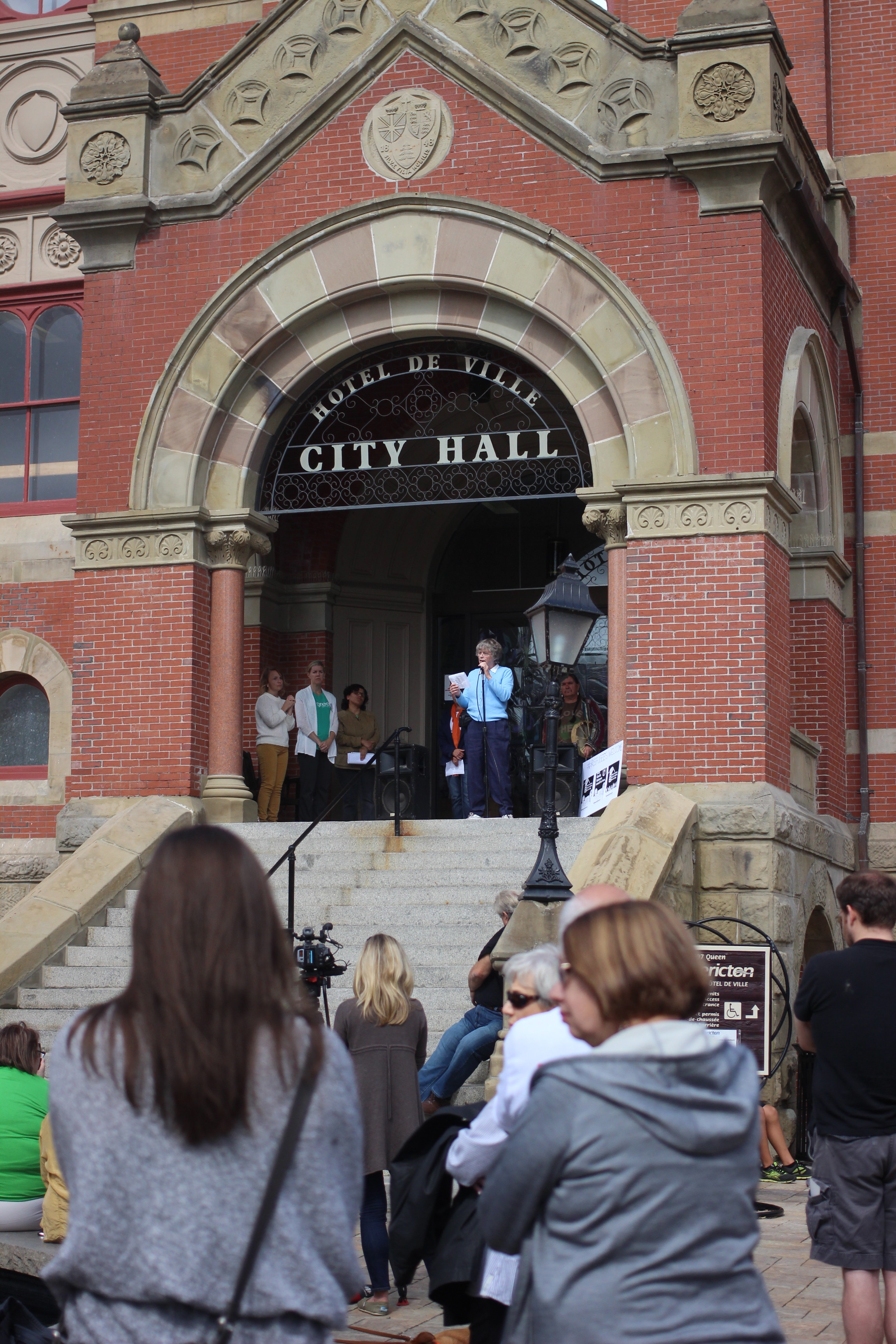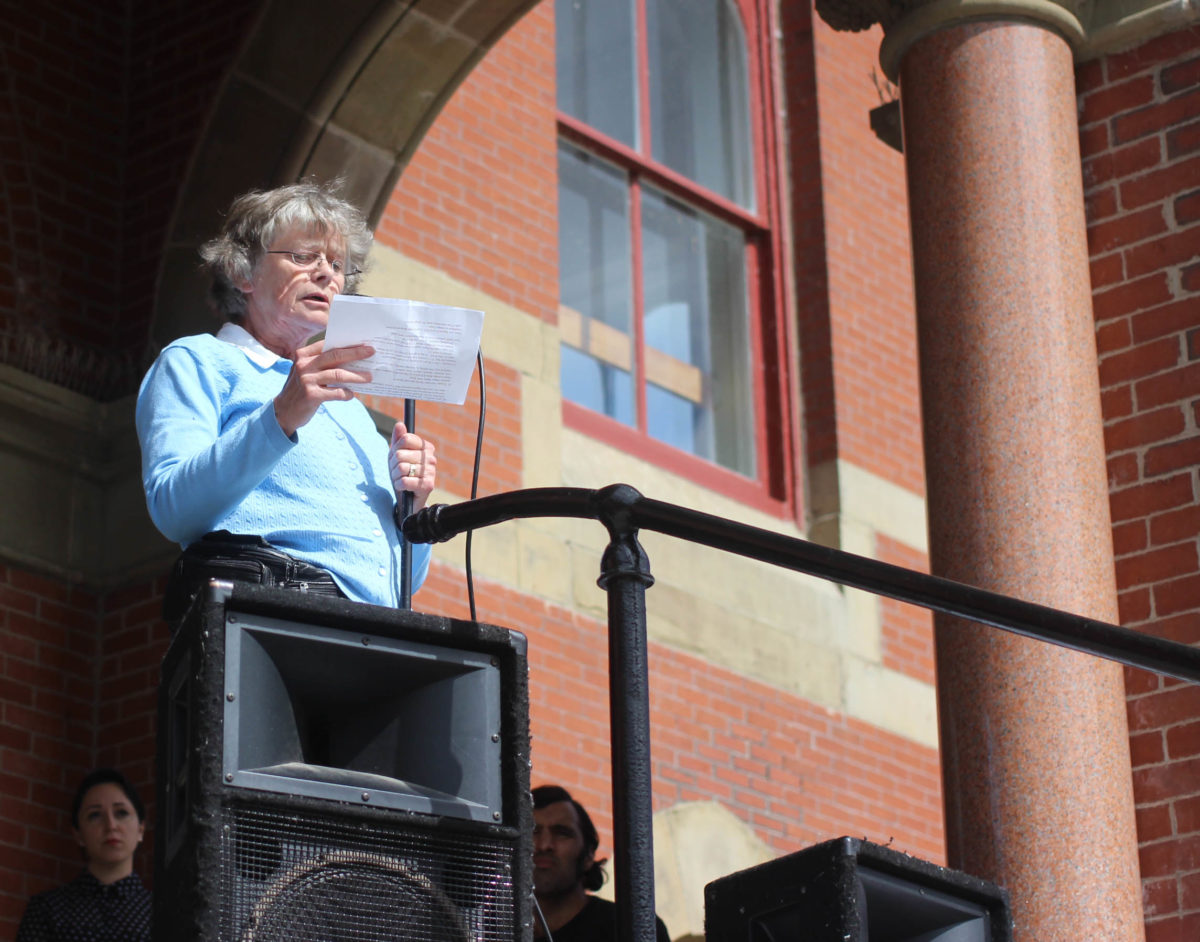


With 4.1 million Syrians now refugees due to the civil war in their country, and another 6.5 million displaced within it, some professors at St. Thomas University are trying to offer what aid they can.
Sociology Professor Sylvia Hale is one of approximately 30 professors at St. Thomas who are trying to raise money to privately sponsor a family of four to six Syrian refugees to come live in Fredericton.
“There’s enough support coming in that I’m pretty sure that we’ll be able to support one family,” said Hale, who sent the initial email to determine if other professors would be interested.
While there are some requirements needed to move forward with the plan, Hale said the biggest obstacle will be getting the federal government to clear the refugees to come to Canada.
“The government has been very, very slow to clear refugees to come to Canada. … We’re pushing the government, as are many other people, to try and get them to speed up the sponsorship application process (and) make it clear there are private sponsors willing and ready,” said Hale.
Hale said once the group has raised $25,000, the ball would really start rolling; something she is confident can happen.
So far Canada has accepted 2,374 Syrian refugees, and pledges to take another 11,300 over three years.
But Canada hasn’t been the only country slow to open the gates to these refugees; much of the Western World has been reluctant to accept refugees.
Hungary’s prime minister, Viktor Orban, was criticized after saying the Muslim migrants must be blocked to keep Europe Christian, while one United Nations report found Australia’s detention of Syrian refugees in processing centres in Papua New Guinea and Nauru to be against international law.
Political Science Professor, Shaun Narine, said although these practices may be against, or at least stretching treaties, there might be reason for it.
He says some citizens fear the people coming to their shores are not refugees, but economic migrants and will burden the country’s resources.
“What (economic migrant) means is these are not people whose lives are at risk or who genuinely have to fear for their safety, but people who simply want to gain a better economic life and they see getting to Australia as the way to do it,” said Narine.
He said this fear, coupled with the idea of not rigorously screening the refugees to ensure radical extremists don’t sneak in pretending to be refugees might be reflected in these countries policies.
Last Thursday, Prime Minister Stephen Harper said he would like to expedite the refugee immigration process and would prioritize the most vulnerable.
Narine said this was Harper’s way to keep Muslim refugees out of the country.
“The targeted groups are all non-Muslim or are small minorities within the Muslim community who experience discrimination,” said Narine in an email. “The effect is to discriminate against the vast majority of refugees, most of whom are Sunni Muslim.”
While the discrimination of refugees based on religion is against international law, Narine said the political right has its points.
“I think there might be a credible argument to be made that many of these (Syrians) are economic migrants,” Narine said. “They’re [taking] these incredible risks, not because they’re under immediate threat of being killed … but [because] they’re hoping for a better life.”
Narine said many Syrians are realizing they could languish for decades in these refugee camps, so they take their lives into their own hands and try to get somewhere.
He said the desperation shown by some of these attempts to leave should be an indication of whether they’re refugees or economic migrants.
“I think there is a grey area here where the countries of the Western World are bending the rules, or are being less accommodating than they should be. But on the other hand the people that they’re dealing with might not be entirely the classical definition of refugee,” said Narine.
As for Hale, she said she doesn’t think bringing refugees to Canada fixes the real problem. Political action to stop the civil war in Syria is also needed, but she said there is a duty to help those in need right now.
“It’s not someone else’s problem,” said Hale. “We have some sort of direct responsibility to help people whose lives are being ruined. … It’s an increasingly global world, we are all fellow human beings.”
